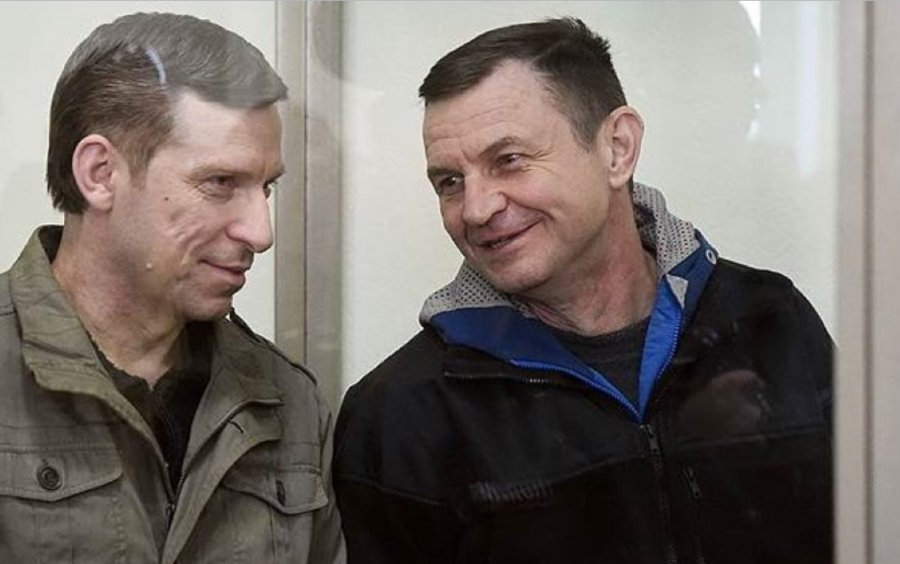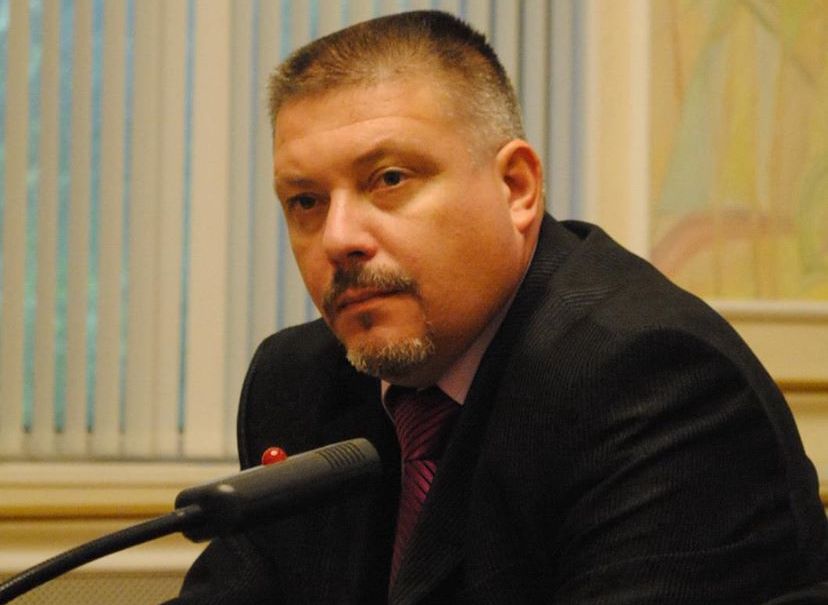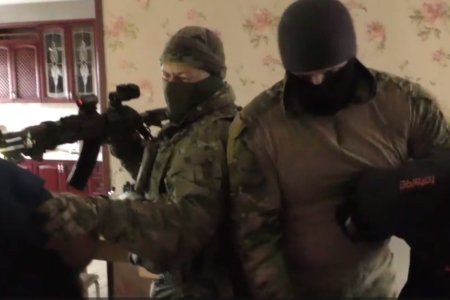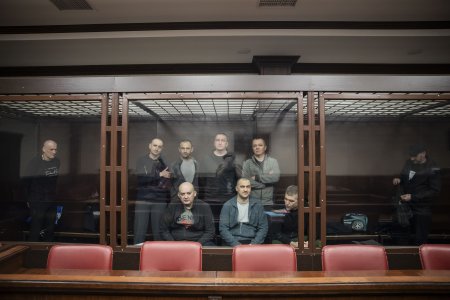
As well as death and destruction, Russia’s full-scale invasion of Ukraine brought a new scale of abductions, torture and persecution to all territory which came under Russian occupation. With so many new enforced disappearances and horrific sentences passed after effectively secret trials, it can be hard to remember those whom Russia seized earlier: Crimean Tatar civic journalists and activists, serving massive sentences for refusing to stay silent about the mounting persecution in occupied Crimea, as well as many other Ukrainians who did not conceal their opposition to Russia’s invasion and occupation of Crimea. Almost none have been released in prisoner exchanges, with Russia having made it impossible to live on occupied territory without its citizenship and then used the foisted Russian passports as excuse for calling the political prisoners ‘Russians’ and refusing to release them.
Publicity is vital, with all of the political prisoners needing our voices in their defence, and, if possible, letters to tell them, and Moscow, that they are not forgotten. The following is not new, since all that has changed is that three Ukrainians from Sevastopol have aged another year in the appalling conditions of Russian prison colonies. The details are, however, worth noticing precisely because Russia was then still unable to fully conceal its brazen fabrication of criminal charges and ‘evidence’. This was a ‘Crimean saboteur plot’ that you would not find in the shoddiest detective novel, one of the men’s lawyers stated at the time. There is nothing to suggest that the FSB’s methods have changed since then. Quite the contrary, since the level of impunity has only increased as Russia’s information blockade has intensified, and the last lever – the European Court of Human Rights – has disappeared (after Russia’s effective expulsion from the Council of Europe in 2022).
‘Ukrainian saboteur’ plots
Russia made two attempts in 2016 to fabricate ‘Ukrainian saboteur plots’, with the first, in August 2016, eliciting open disbelief from the international community. The FSB tried again, in November 2016, but this time at least made a point of ensuring that the claimed ‘conspirators’ knew each other. On 9 November 2016, it arrested three friends living in Sevastopol. Volodymyr Dudka (b. 30 September 1964) was a former naval captain, who had served for 27 years before taking early retirement for health reasons. He had recently become a grandfather and spent a great deal of time with his small granddaughter, but was also receiving medical treatment, and had been on his way to hospital for treatment of an inflamed stomach ulcer when he was seized by the FSB. The latter also came for his two friends, both former naval men, and renowned academics. Dmytro Shtyblikov (b. 10 November 1970) and Oleksiy Bessarabov (b. 5 December 1976) both worked as military analysts for the Nomos Centre, a Ukrainian non-governmental think tank on research into geopolitical issues and Euro-Atlantic Cooperation concerning the Black Sea region.
On 10 November 2016, the FSB claimed that it had detained “members of a terrorist – sabotage group from the Ukrainian Defence Ministry’s Military Intelligence who were planning to carry out acts of sabotage on sites of military and vital civilian infrastructure in Crimea”. It asserted that powerful explosive devices, weapons and ammunition had been found, together with special communications devices, maps of the supposed sabotage targets and “other material evidence of their criminal activities."
Those claims were never retracted but were scarcely reflected in the actual indictment. The same was true of two other arrests later in November 2016, with both Oleksiy Stohniy and Hlib Shabliy later ‘tried’ and convicted of charges that had little, or nothing, to do with their ‘confessions’.
Torture
Dudka and Bessarabov were finally able to see independent lawyers and to retract the ‘confessions’ as having been made under torture and because of threats against their family. In ‘court’, they described the methods of torture used, including electric shocks. Russia’s Investigative Committee ignored this and refused to lodge an investigation.

Shtyblikov, whom the FSB had designated as ‘ringleader’, was never allowed to see an independent lawyer. He later made it clear to his family that he too had been subjected to torture and threats against family members. This was almost certainly why he agreed to admit to the charges and provide false testimony. On 16 November 2017 he received a five-year sentence.
The apparently lower sentence for agreement to go along with the prosecution was, it transpired, a treacherous trick. Shortly before the five years were up, the FSB concocted new, evidently absurd, charges of ‘treason’, with Shtyblikov sentenced on 27 April 2022 to 19.5 years (counted from 9 November 2016) (details here)
Falsified ‘evidence’
Despite the FSB claims, the only video footage released was of supposed ‘confessions’ to working for Ukraine’s Military Intelligence from Shtyblikov and Bessarabov and one showing the seizure of Shtyblikov, and then the ‘search’ of his home. Although the FSB claimed to have found weapons and explosives, the video showed only the Ukrainian flag hanging on the wall, a fake business card which had become notorious for its use in Russian propaganda back in 2014, and an airgun which Shtyblikov used in the game Airsoft (Strike Ball).
In both Dudka’s and Bessarabov’s cases, illegal methods were used to obtain saliva and other DNA material, without any protocol being drawn up and without a lawyer present. Dudka’s lawyer Sergei Legostov provided numerous examples of the absurd ‘evidence’ which he said you wouldn’t find “in the shoddiest detective novel”.
Sentences
All of the above was ignored by ‘judges’ Igor Vladimirovich Kozhevnikov; Vasily Aleksandrovich Avkhimov; and Vladimir Ilych Reshetnyak of the Southern District Military Court in Rostov. Both Dudka and Bessarabov were sentenced on 4 April 2019 to 14 years’ harsh-regime imprisonment and steep fines. The sentences were upheld by Russia’s Supreme Court on 15 October 2019.
Letters
It is Volodymyr Dudka’s birthday today, 30 September. If you can, please write to him and Oleksiy Bessarabov. (A, hopefully, current address for Dmytro Shtyblikov can be found here)
Volodymyr Dudka
355044, Российская Федерация, Ставропольский край, г. Ставрополь-44, ФКУ ИК-11 УФСИН России по Ставропольскому краю,
Дудка Владимир Михайлович 1964 г.р.
Oleksiy Bessarabov
357000, Российская Федерация, с. Кочубеевское, с. Кочубеевское, Ставропольский край, ФКУ ИК-1 УФСИН России по Ставропольскому краю,
Бессарабову Алексею Евгеньевичу 1976 г.р.



